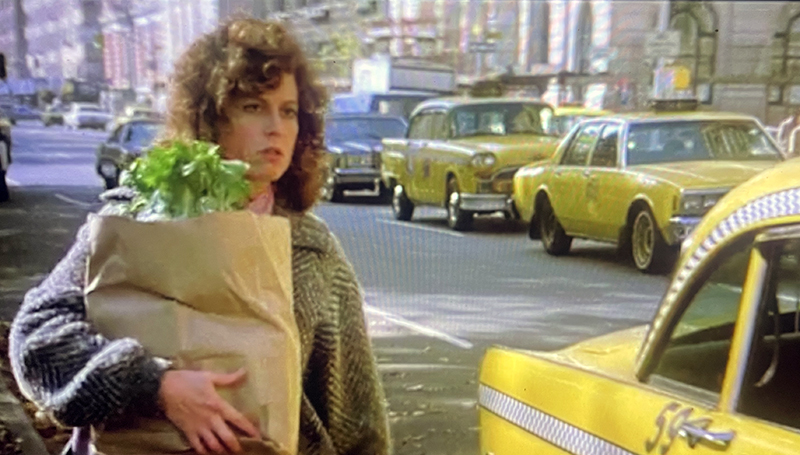17 minutes into the movie Ghostbusters, Sigourney Weaver’s character gets out of a cab carrying a brown paper grocery bag. There are some greens peeking out of the top. She isn’t smiling. But she seems optimistic and independent. She’s wearing a fantastic coat. She lives in a thousand-square foot apartment in a penthouse on Central Park West. So, the scene is, in large part, a fantasy. It’s also at least 50% of the reason why I moved to New York City.
Admittedly, I don’t think it was about just the grocery bags. Movies and television create strong impressions on us. We might think we’re rational beings. But it’s those impressions that steer our decision-making and behavior.
There are major lessons here for strategic communicators.
There was a great “Very British Problems” Instagram post about this the other day, asking Brits about the things they saw in American films as children. Things that didn’t happen in England, but that we wished we had, too. Some common things came up:
- Cardboard cartons for Chinese takeaway.
- Decking and swing seats on houses.
- Paper boys who throw the newspaper into your garden from their bikes.
- Yellow school buses.
- Lockers in high schools.
- Diners.
- Massive suburban houses.
- A tree outside one’s bedroom window, positioned for sneaking out.
- Mailboxes at the bottom of the drive.
- Free coffee refills.
It was nice to see Americans nostalgic for impressions they’d gleaned from British culture, too. Things like Cadbury’s chocolate, fish and chips, and trips to the seaside.
In caves when we used to gather around campfires, we would tell stories. Those stories would release oxytocin which left us feeling more connected. If the story was about escaping from a bear, the oxytocin helped to imprint valuable survival skills into our minds. It’s the same stuff we get when we watch movies. I get it when I’m reading a story to my son Freddy. But I don’t feel it very often when I’m engaging with strategic communications. That’s the missed opportunity. When you’re writing that big awards entry ask yourself: How am I telling the story, here? What lasting impression will I leave on the reader?
Do you have a memory of a movie moment that made a strong impression on you? Something that changed the way you made decisions and behaved? How about a piece of strategic communications work? Do you remember having your mind changed by something you saw or heard from a good cause? I’d love to hear about it.


